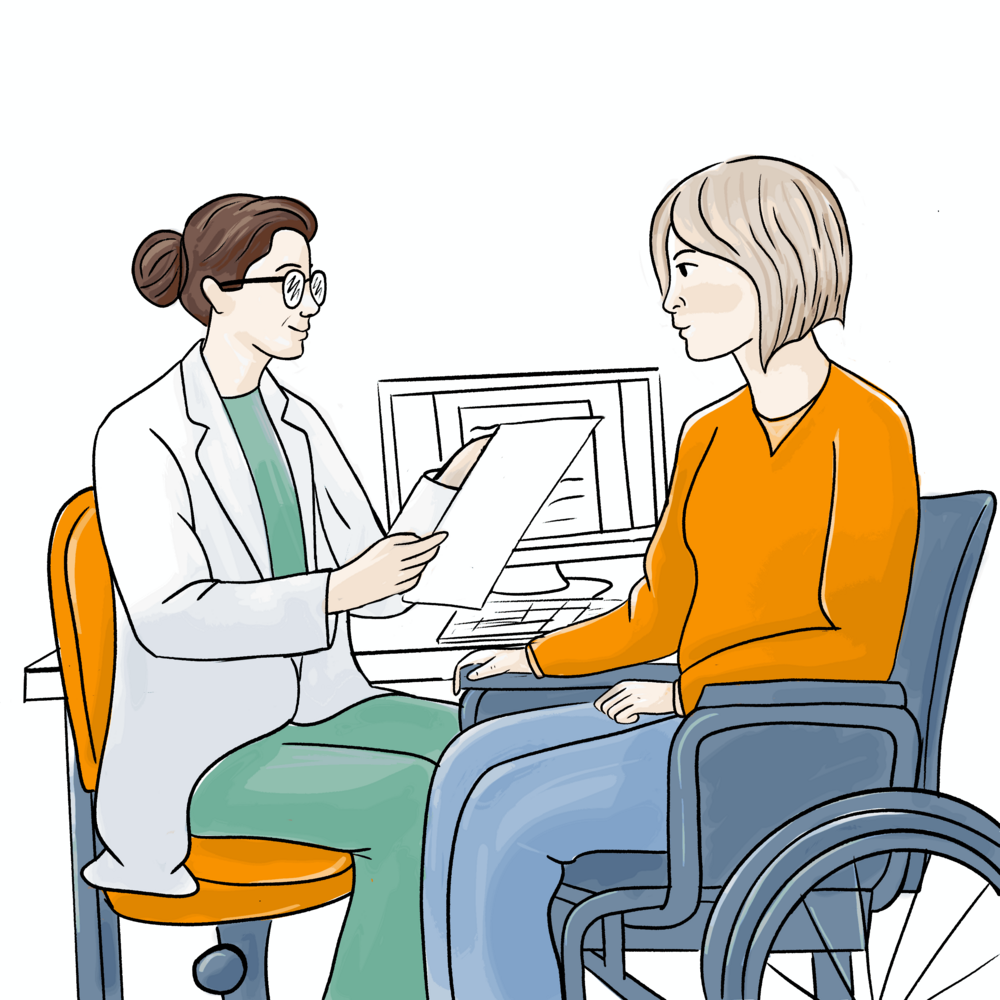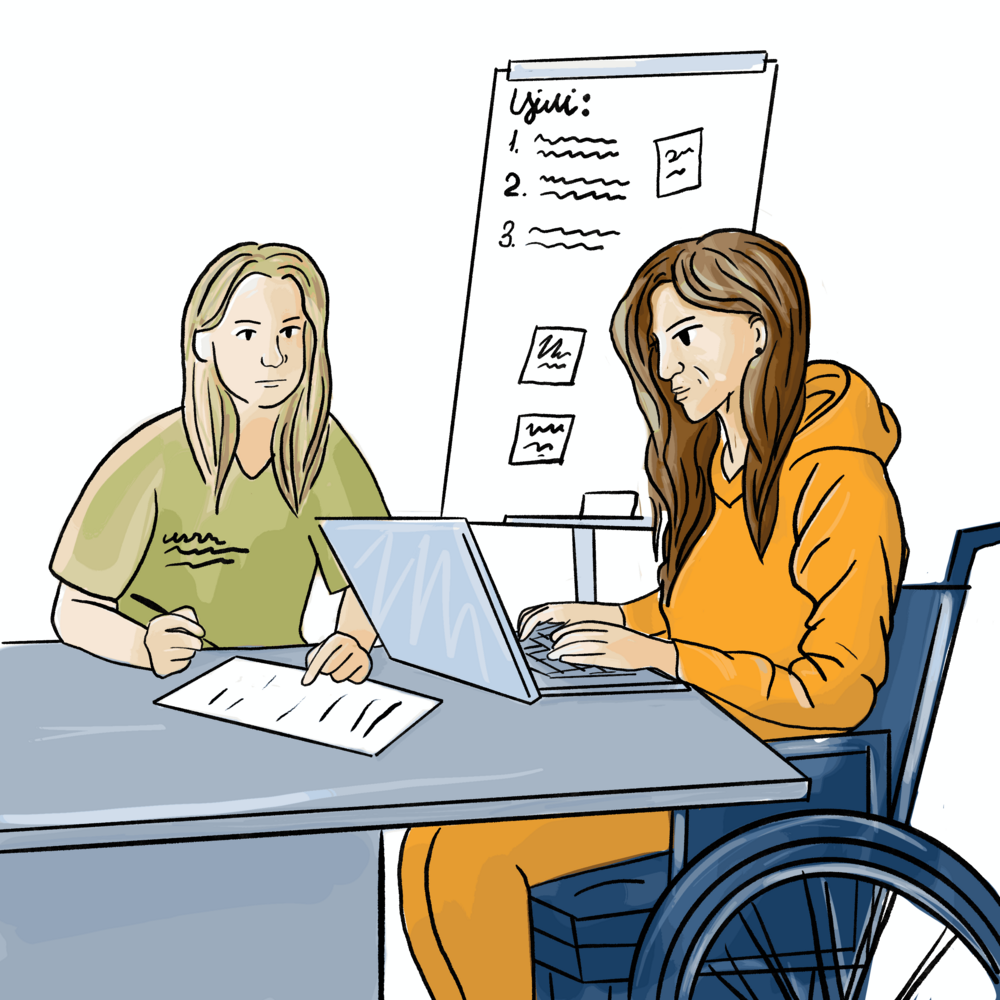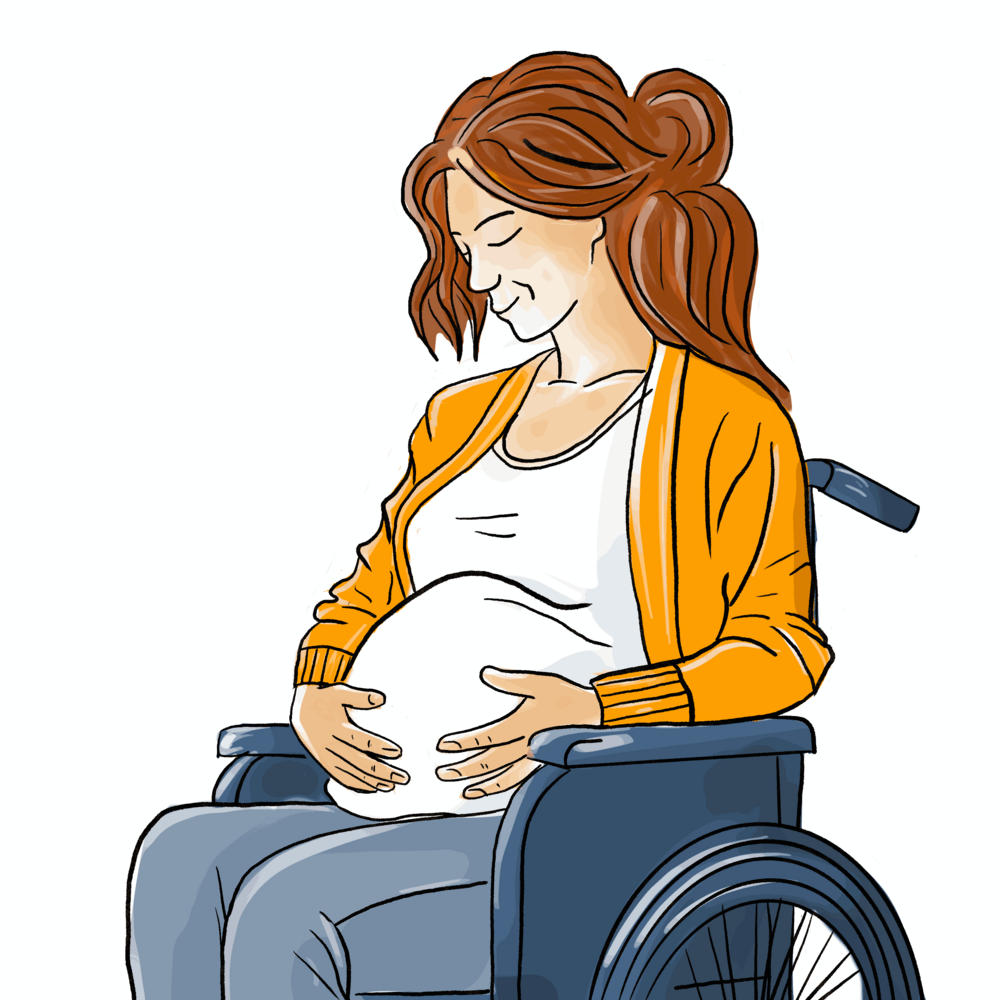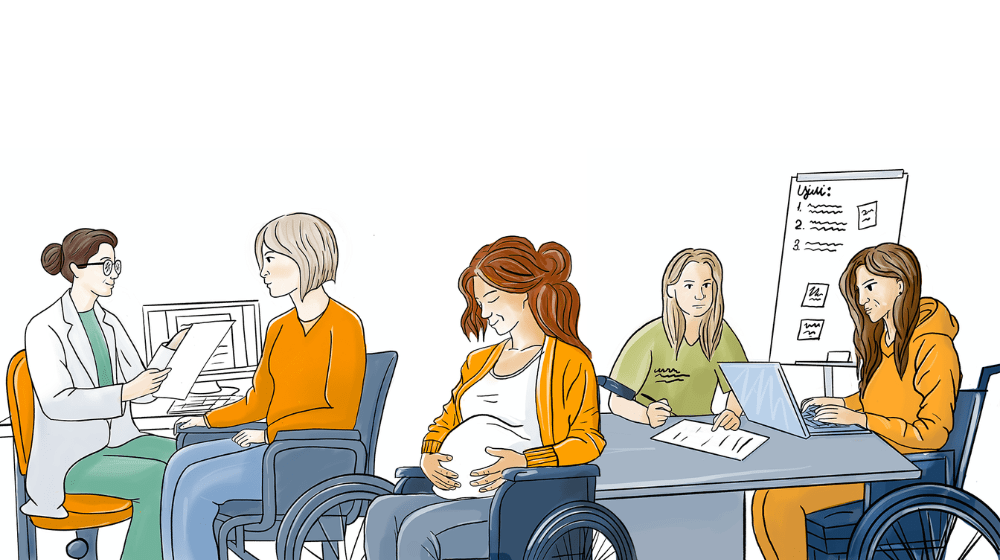According to the Ministry of Social Policy, Ukraine has around 3 million registered persons with disabilities, of which over 1 million are women of reproductive age. Sadly, 65% of these women visit medical facilities less than once a year. Women represent a particularly vulnerable group. Creating an inclusive environment for women with disabilities is becoming increasingly urgent, particularly in the healthcare sector. According to WHO, women with disabilities often face dual discrimination — both due to their gender and their physical condition.
Access to quality healthcare services should be a concern for every woman, regardless of physical ability. However, many gynaecological services in Ukraine are not designed for women with mobility challenges, such as those who rely on crutches or wheelchairs. Barriers to receiving care can also include advanced age, joint issues, or post-stroke conditions. This is why accessible gynaecological offices were established.
Today, we are sharing the stories of three women with disabilities who received support from UNFPA's sexual and reproductive health services in Ukraine.
Kateryna’s Story
Kateryna, 34, was born with cerebral palsy, a condition affecting movement due to brain development issues. Despite lifelong health challenges, she understands the importance of regular medical visits. According to gynaecologists, regular screenings and consultations are essential for early disease detection.

"For me, the ability to visit a doctor when I need to, without depending on others, is crucial," Kateryna shares. "For some, it’s routine: if you’re sick, you go to the doctor. For people with disabilities, it’s a whole ordeal. Thankfully, things are starting to change."
"We all still have a lot of work to do to normalize and respect people with disabilities, treating them as full members of society," Kateryna continues. "No family is immune, and we shouldn’t wait for the war to end to start integrating them with dignity into our communities."
Nataliia’s Story
Nataliia, a public activist from Kamianets-Podilskyi, Khmelnytskyi region, has been using a wheelchair for 35 years following a spinal injury. Despite the challenges she faces daily, Nataliia is a role model of strength and perseverance. She leads several organizations and has raised two children.

As she recalls, accessing healthcare as a young woman was a challenge: "When I became pregnant during Soviet times, it was almost unheard of. The medical system didn’t think people like us had the right to have children."
"I arrived at this accessible clinic feeling hopeful because I knew I didn’t need to ask for help. The facility is excellent, and the specialist was kind and understanding. It was at that moment I realized that our time has come — people with disabilities or elderly can finally receive the help they need without struggle," Nataliia shares.
Her story highlights that accessible gynaecological offices not only ensure comfort and accessibility but also promote dignity and equality.
Svitlana’s Story
Svitlana (name changed at her request), 35, grew up in Severodonetsk, Luhansk region. After an accident left her with a spinal injury, she still held onto the dream of becoming a mother.
Following the full-scale invasion, Svitlana relocated to Kolomyia in western Ukraine, where she accessed UNFPA’s mobile gynaecological team for specialized care. With the support of the team, she was able to conceive after years of unsuccessful attempts.
"I suffered a spinal injury at 25 and have used a wheelchair since. I’ve always been active, participating in national swimming competitions. As a civic activist, I’ve worked to improve conditions for people with disabilities in my hometown," Svitlana shares.
"Upon hearing about the mobile team, I immediately sought a consultation. I had one question: can I have a baby? Previous doctors hadn’t identified any issues, and I was fortunate to meet Dr. Maksymova, a gynaecologist from UNFPA’s team, who referred me for further testing," she recalls.
"A month after treatment, I felt something strange but didn’t dare hope. I took a test — two lines! We immediately scheduled an ultrasound, and there it was — our little one," Svitlana beams.
Accessible gynaecological offices and mobile units operate as part of UNFPA's humanitarian response in Ukraine, funded by the European Union, and supported by the Ministries of Foreign Affairs of Denmark, Iceland, Sweden, and the Republic of Korea.


